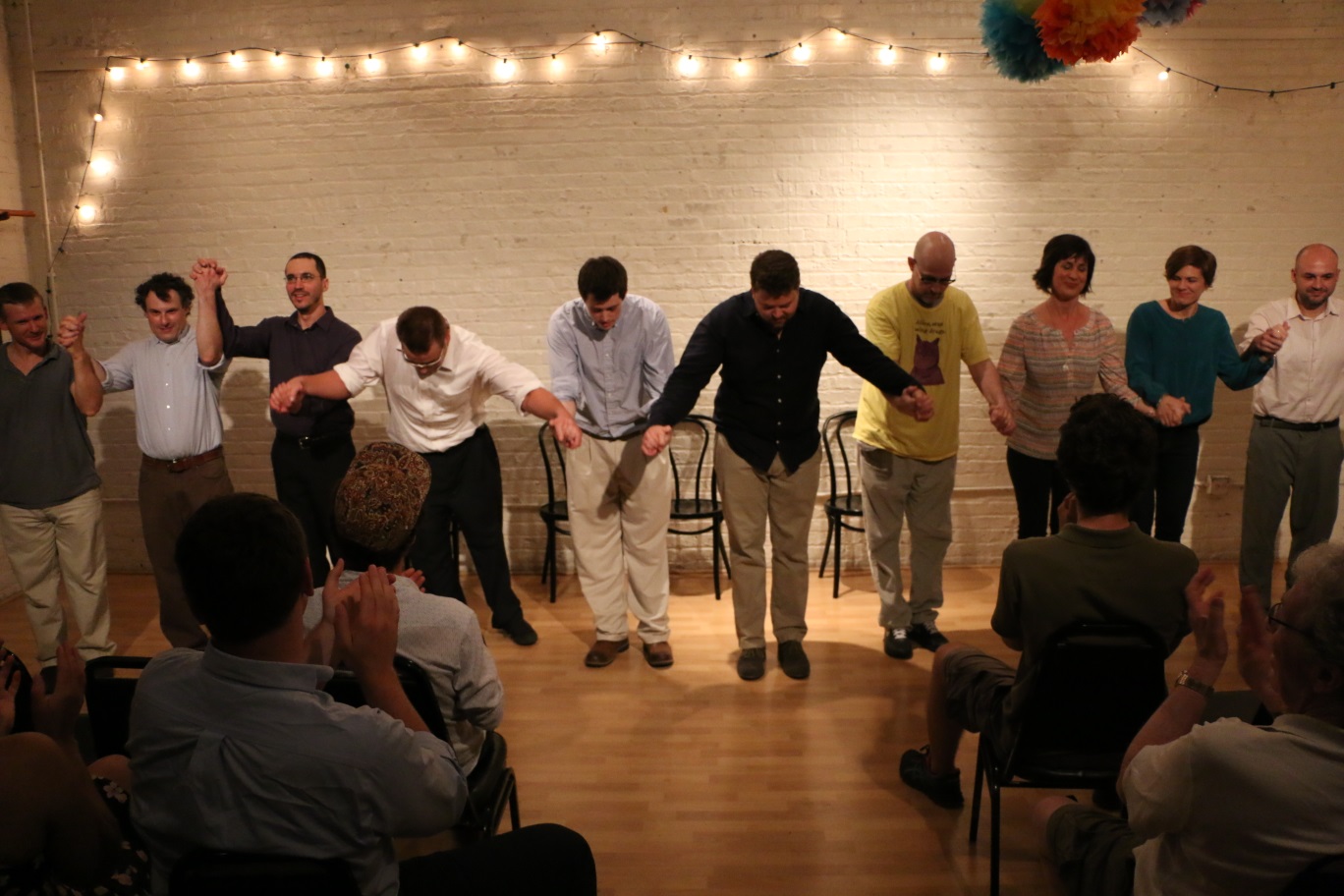5 Ways to Give Notes After an Improv Show

As improvisers, we always want to be pushing ourselves to improve and to find ways to continue to up our game. And if you’re interested in improving, there’s nothing that can help more than getting notes after an improv show.
But the process of getting and giving notes is not as easy as it seems. Ideally, your group should hire a coach or director to give impartial notes to the group, but not every group has the means or the budget to do this.
So what then? Sam Bowers, a Chicago improviser and the director of the Improv Nerd podcast, shares his thoughts on the best ways to give notes to your improv group.
5 Ways to Give Notes After an Improv Show
By Sam Bowers
- From Your Coach/Director
The best way to administer notes after a performance is to have them come from a dedicated coach/director, who was not also in the show. It’s more difficult to be objective about a show when you’re on stage because it forces you to do both jobs, performing AND coaching, which prevents you from doing either at an A+ level.If you can, try to keep the same director for a long period of time because it will allow the ensemble to begin falling in line with the coach’s improvisational philosophy and to craft a show your director believes will be most successful. Plus, keeping a consistent coach also allows for future notes to be much more specific and nuanced, as this person has watched you and your team play in detail for a long period of time. Most importantly, this allows the ensemble to stay united because you are truly peers listening to the same authoritative voice.
- “Coach For The Day”
Upon booking an improv show, designate one of your ensemble members to be the director for that night. They should set the call time and warm up procedure, as well as provide some goals for the show that evening. After the show, this one person should give their notes on the performance. This is a great way for ensemble members to begin thinking like directors, and giving notes/teaching always makes you a better performer. And if this person gives a note someone else in the group who doesn’t agree with it, it’s ok, because everyone on the team will have a chance to direct at some point. You can extend this further by having cast members take turns leading practice as well.
- Everyone Gives Notes
This one can be very difficult to pull off, but is definitely possible if your group dynamic is right. Having a chance to voice your opinions after a show in a formal setting can be a healthy expression of post-show feelings, and it can prevent ensembles from ignoring elephants in the room. However, this method obviously can become the most toxic, as an improv ensemble, which is supposed to be a group of peers, will suddenly have a very different dynamic whenever someone gives a note to someone else. By giving someone a note, you are saying, “I know what you did wrong and how you can improve, and I need to tell you because you can’t figure it out on your own.” If you’re on a team that truly respects the opinions of each other and can genuinely check their egos at the door, this method can work. Unfortunately, most artists are insecure and may often feel like a note from a peer is a personal attack on them, and thus toxicity and resentment may breed.
- Everyone Gives Personal Notes
Spend your notes session talking exclusively about your performance. This prevents you from potentially hurting another teammate’s feelings, and allows you the opportunity to educate your teammates on your style of play. Explaining what your intentions were in different scenes gives your teammates insight into how your improv brain works so they can better anticipate and react to moves you make in the future. This method can backfire, however, if one person gives themselves notes but misses what another person might consider to be a HUGE mistake they made in the show. This can terrify your fellow cast mates if you fail to acknowledge something they consider to be a mistake. “He doesn’t even realize he’s doing that bad thing!” may run through your heads, causing teammates to lose respect for each other.
- No Notes
It’s important to decide what your team wants to get out of a notes session. If your group is a professional ensemble that is seeking to please paying audience members and corporate clients on a consistent basis, investing in a notes procedure is absolutely necessary. However, if your team is simply a group of friends who enjoys playing together, opting for a “no notes” philosophy might help maintain the group’s chemistry. As a team, ask yourselves what’s more important: putting on the best possible show for the audience/client, or maintaining a healthy ensemble that enjoys working together. If it’s the latter, forgoing any notes might serve you best so that nobody ever gets upset at each other.
Along with directing the Improv Nerd podcast, Sam Bowers produces several television and web series in Chicago, as well as performs improv across the United States with ComedySportz and the award-winning LL Cool Beans.

